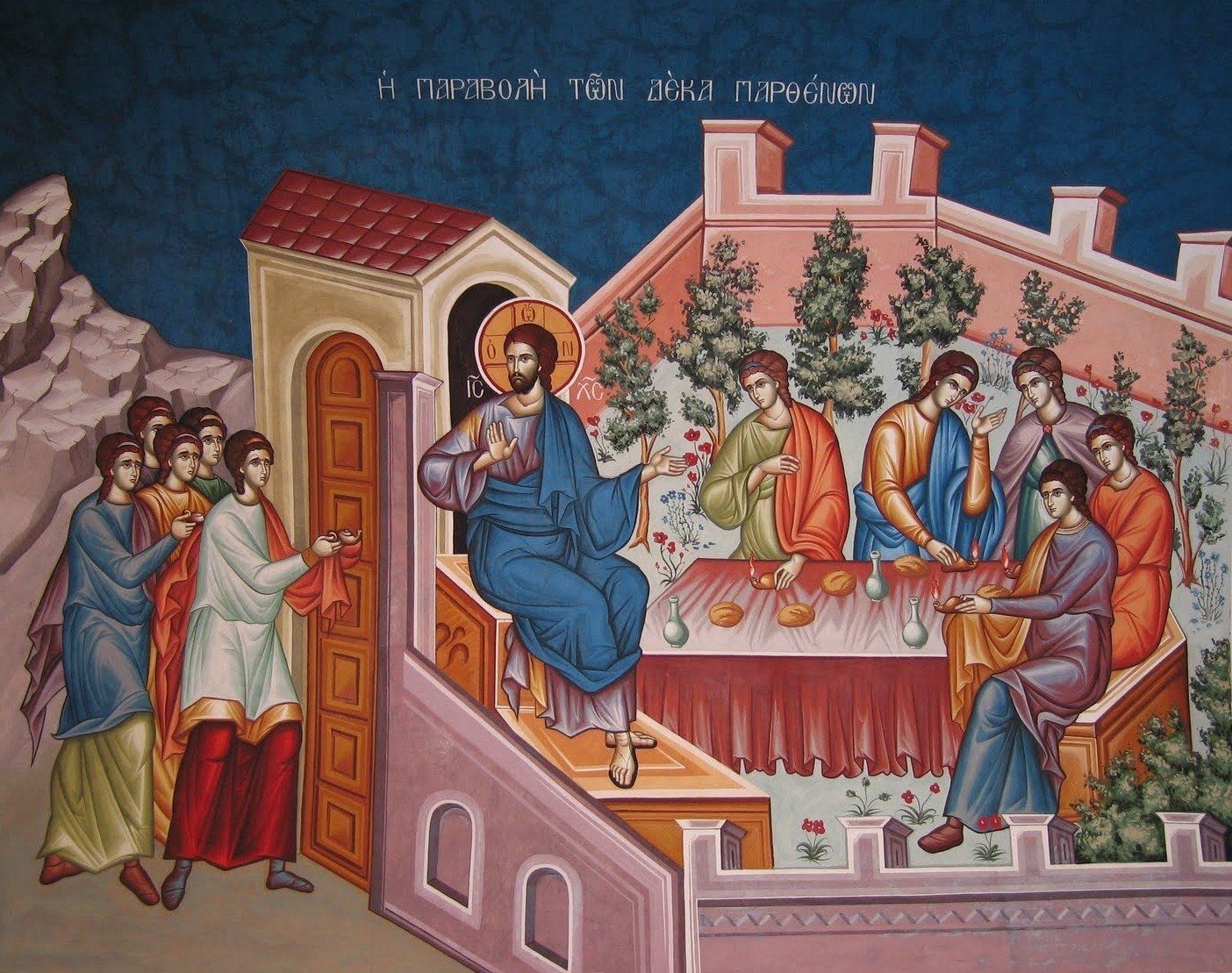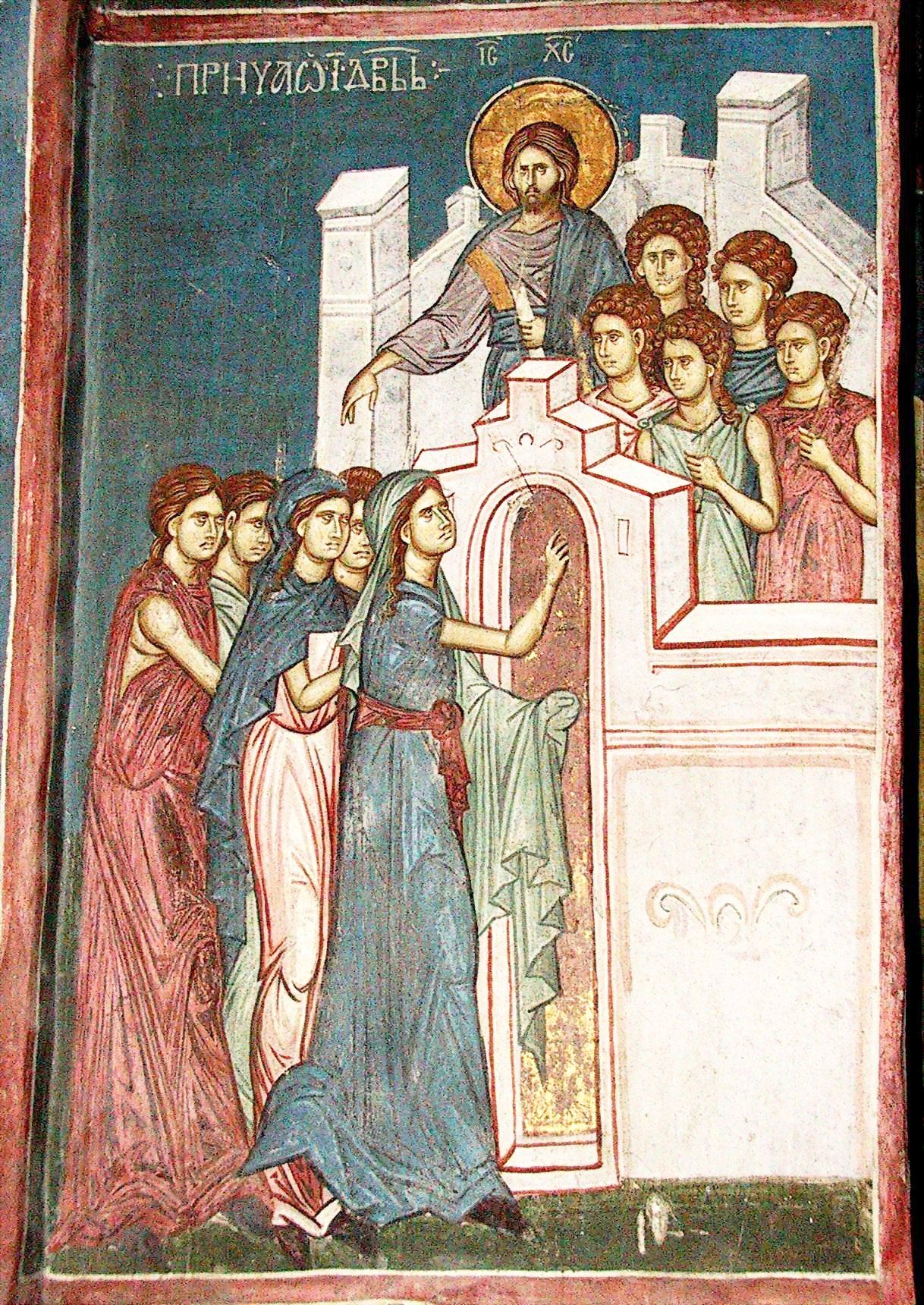Message of Abbot Paul - Friday 27th August
Message from Fr Paul for Friday, 27th August 2021
Today we keep the feast of St Monica, the widowed mother of St Augustine, whose feast we celebrate tomorrow. They were members of the large Roman colony along the North African coast, where many of the early Christians lived, from modern day Egypt as far west as Algeria. The North African Church produced many saints and scholars, among them a great number of martyrs. Sadly, these flourishing Christian communities, apart from those in Egypt, did not survive the demise of the Roman Empire and the advent of Islam. Augustine of Hippo, the city where he eventually became a bishop, was not a Christian from his youth, but was converted as an adult due to the prayers and tears of his mother, St Monica, and the teaching and example of St Ambrose of Milan, who received Augustine into the Church in the rites of Christian Initiation during the Easter Vigil in the year 386. We owe a great debt to St Monica for the service of her son St Augustine to the Church and to Christian Philosophy and Theology. She is also one of the most famous and important widows the world has ever known. I would very much like to see the restoration or renewed institution of the ancient Christian practice of the Order of Widows, but that is a discussion for another day and really one for widows themselves.
All this talk about widows, yet today’s Gospel passage from Matthew, (Mt 27: 1-13), is the Parable of the Ten Virgins or Bridesmaids, five of them wise and five, foolish. As in yesterday’s Gospel, the punch line is found in the very end, the summing up. “Stay awake, because you do not know either the day or the hour.” We can read the parable here, although I won’t give an extensive commentary, as the message is quite clear. “Jesus told this parable to his disciples: ‘The kingdom of heaven will be like this: Ten bridesmaids took their lamps and went to meet the bridegroom. Five of them were foolish and five were sensible: the foolish ones did take their lamps, but they brought no oil, whereas the sensible ones took flasks of oil as well as their lamps. The bridegroom was late, and they all grew drowsy and fell asleep. But at midnight there was a cry, “The bridegroom is here! Go out and meet him.” At this, all those bridesmaids woke up and trimmed their lamps, and the foolish ones said to the sensible ones, “Give us some of your oil: our lamps are going out.” But they replied, “There may not be enough for us and for you; you had better go to those who sell it and buy some for yourselves.” They had gone off to buy it when the bridegroom arrived. Those who were ready went in with him to the wedding hall and the door was closed. The other bridesmaids arrived later. “Lord, Lord,” they said “open the door for us.” But he replied, “I tell you solemnly, I do not know you.” So, stay awake, because you do not know either the day or the hour.’”
The parables are highly exaggerated stories that Jesus uses to make what he wants to say clear to his hearers. He also wants them to think: about the foolish bridesmaids, about the sensible ones and about the bridegroom himself. Why were the sensible virgins not willing to share their oil with the others? That strikes me as mean and uncharitable, hardly being a good neighbour to someone in need, even if the other five were foolish and unprepared. What would you have done? What about the foolish ones? Well, it’s easy to criticise their lack of preparation, their laziness and shallowness, but how often have I behaved like that, especially when it comes to my spiritual life: prayer, the sacraments, lectio and so on. Perhaps it’s the bridegroom who most worries me. Is this really Christ, the Son of the Father? Could he possibly be that harsh? I mean, those words to the foolish maidens when they arrive late for the wedding feast are grim in the extreme. “Those who were ready went in with him to the wedding hall and the door was closed. The other bridesmaids arrived later. “Lord, Lord,” they said “open the door for us.” But he replied, “I tell you solemnly, I do not know you.”” That God should say these words, the harshest in Scripture, to anyone is beyond my understanding, but we must not forget, this is only a parable. If we do not know God or even want to know him, then why should he know us? After all, the foolish virgins rejected Jesus by their behaviour and lack of preparedness. So the words of the Bridegroom are a reflection of their own attitude towards him. This parable is a warning, not of what will happen, but of what could happen. If God loves us and Christ gives his life for us as a sign of that love, then surely our response should be to love him above all else and our neighbour as ourselves.











